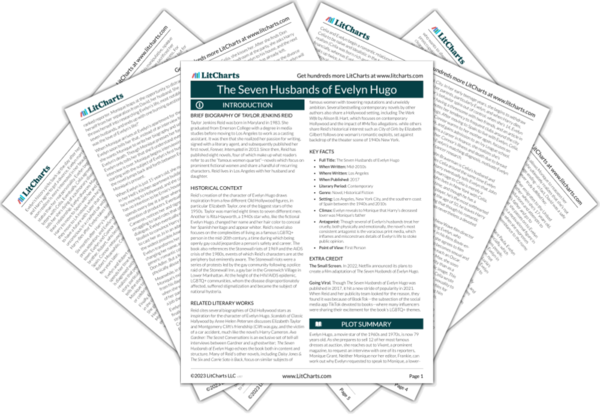As
Monique struggles to reply to
Monique’s mother’s good luck text,
Evelyn walks down the stairs towards her. She looks as beautiful as any of the pictures Monique has seen of her. Though she’s certainly had cosmetic surgery done and has had her
hair treated, she gives off the impression of someone aging gracefully. Instead of shoes, she’s wearing thick socks. Evelyn greets Monique by name and, carrying her coffee for her, leads her to the living room. The two images on the wall are in black and white: one is of
Harry Cameron, and the other is the poster for the
Little Women adaptation that Evelyn and
Celia St. James starred in.
